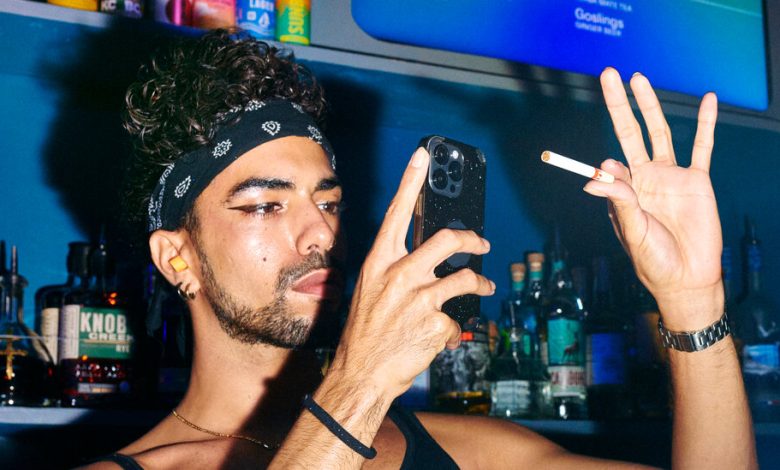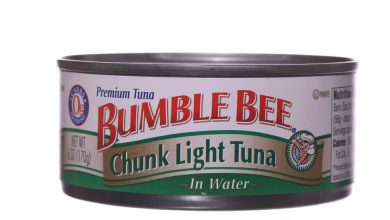A Viral Cigarette Brand? In 2023?

On a Saturday evening in late May on Delancey Street, the rain broke just long enough for a smoke break. A group had formed outside Big Ash, a vintage clothing store where a Juicy Couture zip-up sweatshirt from the mid-2000s was on sale for $175. There, three young men — who, despite being in their 20s and 30s, declined to give their last names out of fear of their parents learning they smoked — lit up a new type of cigarette.
“I’m getting lightheaded, yay,” one named Miles, 32, said.
“I’d rather smoke one or two of these a day than vape,” Ben, 25, replied.
The cigarettes were Hestias, a tobacco brand that dates to the early 2010s but has only recently begun appearing between the fingers of smokers with the recent arrival of a new line of cigarettes. In June, they were conspicuous at a party on the Lower East Side for the Praxis Society, a Peter Thiel-backed group trying to build an autonomous city in the Mediterranean Sea. A crowd of artists and writers smoked them indoors at the literary salon Beckett’s. Later that month, they were raffled off as a prize at Forever Magazine’s Purity Ball fund-raiser, held in the Oculus at the World Trade Center.
Inside Big Ash, the cigarettes had been set out in a metal dish. The designer Mati Hays was displaying clothing with cigarette-inspired flair: an ashtray had been fashioned into a petite pillbox hat, with a vintage case affixed to a leather strap as a headband, each accompanied by a few Hestia loosies.
Hestias are not sold in New York — the brand is seeking a New York factory willing to stamp the product for tax purposes, something it hopes to achieve by the end of the summer. Only residents of Florida, Texas, Minnesota and Mississippi can find them in stores; everyone else has to buy them online, where the cigarettes are sold by the carton. But the brand hands them out to influential New Yorkers, and occasionally Angelenos, to spread the word, turning the cigarette into a kind of cult status object for those still willing to risk the many dangers of smoking.
Jason Stewart said he began smoking the cigarettes when he was approached on social media by Hestia Tobacco’s founder, David Sley, in November. He sometimes mentions the cigarettes on the podcast he co-hosts, “How Long Gone,” which draws a crowd of bicoastal media types and aspiring tastemakers.
“Whenever I go out — I was at the Celine show, all these parties this week — and I pull them out, everyone has a question about them,” Mr. Stewart said on a December episode. “Support small tobacco,” his co-host, Chris Black, replied. He encouraged listeners to give their money to “a nice guy” instead of bankrolling giants like Philip Morris.
“Cigfluencing,” a term the blogger Meg Superstar Princess used when she mentioned Hestia in a popular newsletter, isn’t new: Cigarette makers have always relied on creating an aura of coolness around smoking to sell their products. But the old standbys like Marlboro no longer need to buy out full-page magazine spreads or put up billboards just to boost their brand recognition. Nor could they: Today’s tobacco laws restrict outdoor advertising in most of the country, and a majority of social media companies similarly prohibit tobacco-related advertisements.
“It took a type of product that you can’t legally advertise anymore to create the ideal influencer-marketing campaign,” Mr. Stewart, 43, said in an interview.
Hestia, still little known compared with its Big Tobacco rivals, has found a different approach, too. Mr. Sley said he gave cigarettes to popular New York residents and event hosts in hopes that they would decide to mention them on social platforms. (So long as the person isn’t paid to promote the product, that doesn’t violate federal or social media rules.) On Instagram, a somewhat unlikely place for a cigarette brand to be, Hestia’s account is a collage of memes, reshared posts from other people’s pages, YouTube reviews and sightings in Paper magazine slide shows.
“I can’t pay for ads, so seeding them to the people with the most valuable megaphones” is how he markets his product, Mr. Sley, 39, said. “Visibility is meaningful regardless of location, and obviously New York and L.A. are two places that are very valuable.”
Mr. Sley doesn’t live in either of those places — he lives in Raleigh, N.C. — but he said he had tapped into their scenes through figures like Mark Hunter, the well-known party photographer better known as the Cobrasnake, and through podcasts like “How Long Gone” and “Red Scare.” The result is a winding network of people who all have one thing in common: They receive cartons of free Hestias.
In February, Meg Superstar Princess, the blogger, was featured in Perfectly Imperfect, a newsletter in which fellow “it” girls, influencers, celebrities and artists share a selection of lifestyle and product recommendations. “Smoking cigarettes is extremely important and cool,” she wrote. “Vaping is only acceptable on like airplanes or at work … Lately I’ve been smoking Hestia Cigarettes, they’re not avail in NYC yet but I get them shipped special (free!) to me.”
Cigarette use is the leading cause of preventable death in the United States, responsible for cancers in almost every corner of the body and nearly one out of every five deaths. Nationwide, smoking has declined drastically over the past decades, down to its current record low. Last year, around 11 percent of adults reported smoking cigarettes, according to the Centers for Disease Control and Prevention.
But paradoxically, a boom in vaping over the last few years has made burning an actual paper-wrapped, plant-and-chemical-filled cigarette practically taboo. And for that reason, among people like Meg Superstar Princess, it’s making a comeback. (“God Hates Vapes,” a recent post on the Hestia Instagram account proclaimed.)
It may seem like a novelty to smoke a Hestia in particular. Before Hestia, the Food and Drug Administration hadn’t approved a new cigarette brand in 15 years.
According to Clifford E. Douglas, director of the University of Michigan’s Tobacco Research Network, a majority of tobacco products that have achieved approval since 2007 have been owned by big tobacco companies, usually by claiming that the new product is fundamentally the same as others already on the market. (Hestia was grandfathered in by making just such a “substantial equivalence” argument.)
When the tobacco giant Philip Morris supported giving the F.D.A. the power to regulate the tobacco industry, some argued it was “in part because it locked in their market position,” Mr. Douglas said. Smaller competitors, he continued, “couldn’t advertise in the usual ways anymore. It was harder for them to fight back in the marketplace.”
This makes Hestias not only the rare underdog to emerge in the industry, but a darling among those of artisanal, anti-oligopoly tastes, including some conservatives. In July, the Fox News columnist David Marcus smoked a Hestia during an appearance on “The Megyn Kelly Show” after the brand sent him a pack. Earlier that month, Isaac Simpson, the founder of the marketing agency Will, identified the brand as part of a group of countercultural “anti-synthetic capitalists” in a post for the libertarian finance blog ZeroHedge, contrasting it with companies like Bud Light.
But for the most part, Hestia smokers seem to make up a highly specific subset of the New York City population, said Matthew Weinberger, a photographer who has noticed people lighting up the cigarettes as he captures the downtown milieu.
“The Dimes Square, or post-Dimes Square, downtown New York scene is one which has a big, real-world presence, but it’s also kind of chronically online,” he said, suggesting that the cigarettes could risk over-saturation on the internet.
Could Hestias become too played out in New York before they even arrive?
“The hipsters roll their eyes like, ‘Oh, you’re smoking Hestias at the Perfectly Imperfect party,’” Meg Superstar Princess said in an interview. “But then they all smoke them. That’s how you sell a product — first you get the hipsters who roll their eyes, and then you get everyone else.”




